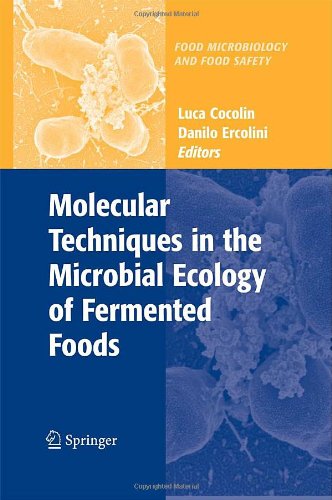

Most ebook files are in PDF format, so you can easily read them using various software such as Foxit Reader or directly on the Google Chrome browser.
Some ebook files are released by publishers in other formats such as .awz, .mobi, .epub, .fb2, etc. You may need to install specific software to read these formats on mobile/PC, such as Calibre.
Please read the tutorial at this link: https://ebookbell.com/faq
We offer FREE conversion to the popular formats you request; however, this may take some time. Therefore, right after payment, please email us, and we will try to provide the service as quickly as possible.
For some exceptional file formats or broken links (if any), please refrain from opening any disputes. Instead, email us first, and we will try to assist within a maximum of 6 hours.
EbookBell Team

0.0
0 reviews
ISBN 10: 038774519X
ISBN 13: 978-0387745190
Author: Luca Cocolin, Danilo Ercolini
The approach to study microorganisms in food has changed. In the last few years the field of food fermentations has experienced a very fast development, thanks to the application of methods allowing precise picturing of their microbial ecology. As a consequence, new information is available on the structure and dynamics of the microbial populations taking turns during fermented food production. This is the age when functional genomics, transcriptomics, proteomics and metabolomics are going to shed light on the overall role of bacteria in food ferm- tation, considering also their interactions. Nevertheless, the last 10 years can be considered the “detectomics” era, since much research effort has been dedicated to the development and optimization of biomolecular methods for the detection, reliable identification and monitoring of microorganisms involved in food fermentations. The identification of species and strains during the different phases of fermented foods production allows the understanding of the time when they act or play a role in the food matrix, and the molecular methods can, thus, be used for this purpose in a sort of functional diagnostics. It is well recognized by researchers world-wide that traditional microbiological methods often fail to characterize minor populations or microorganisms for which a selective enrichment is necessary. Moreover, stressed and injured cells need specific culturing conditions to recover and become cultivable on agar media.
molecular techniques in the microbial ecology of fermented foods
molecular techniques in microbiology
what is molecular microbiology
molecular gastronomy techniques
molecular techniques examples
Tags: Luca Cocolin, Danilo Ercolini, Molecular Techniques, Microbial Ecology